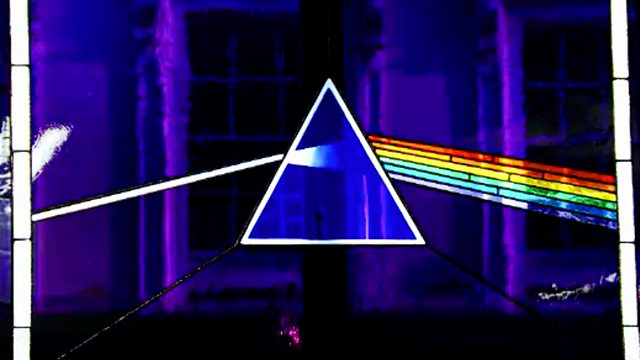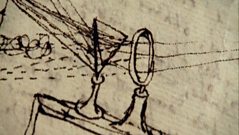
Newton's Prism
Marcus du Sautoy tells the story behind Isaac Newton's diagram of a prism which demonstrated that white light is not pure, but made up of different colours.
Series in which mathematician Marcus du Sautoy explores the stories behind some of the world's most familiar scientific diagrams.
What exactly is light? What is colour? In the mid-1660s, Isaac Newton bought a pair of prisms at a fair near Cambridge, which were to be the basis of a series of experiments that would unlock a secret that had occupied scientists for centuries - the nature of light itself.
To explain what he had done, Newton created a diagram. It is called The Crucial Experiment and is a pivotal image in scientific history, a graphic moment when the ancient world was overturned by modern science. Newton demonstrated that white light is not pure, but made up of a number of different colours, the colours of the rainbow.
Newton's ideas transformed our knowledge of what we see and how we see, and the prism and its refracted colours became a captivating image. From fibre optics to the cover of Pink Floyd's album Dark Side of the Moon, Newton's work went on to influence centuries of science and art.
Last on
More episodes
Previous
Next
Clip
-
![]()
The Beauty of Diagrams - Newton's Prism
Duration: 02:03
Credits
| Role | Contributor |
|---|---|
| Presenter | Marcus du Sautoy |
| Series Producer | Michael Waterhouse |
| Executive Producer | Harry Bell |

